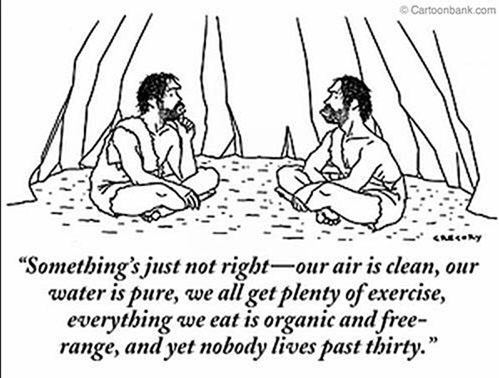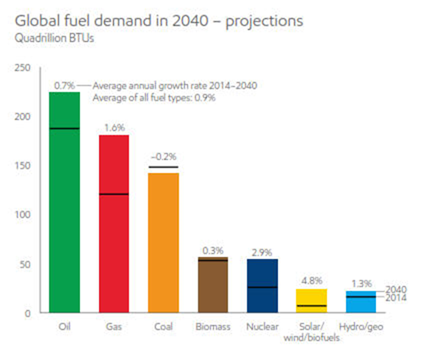7.5.3 Energie
en Energy
fr Énergie
Mit folgenden Links wird von anderen Webseiten auf diese Seite verwiesen:
| de | en | fr |
|---|---|---|
|
Ethos, Ethik, Moral, Symposien Energie |
Ethic, Morality, Symposia Energy |
Éthique, moralité, colloques Énergie |
- 1 en Energy Myths and Realities
- 2 de Die Industrialisierung mit WIND- und PHOTOVOLTAIK-Anlagen ist ein Verbrechen
- 3 de Symposium der Vernunft
- 4 de
Der moralische Aspekt fossiler Treibstoffe
en The Moral Case for Fossil Fuels
| de | en | fr |
|---|---|---|
|
Klima: Fragen Moral, Ethik |
Climate: Questions Morality, Ethics |
Climat: Questions Morale, Éthique |
⇧ 1 en Energy Myths and Realities
Extracts from a Symposium on Environmental Ethic
-
Reality 1:
Worldwide demand for energy will grow by 30-50% over the next two decades - and more than double by the time you're my age. Simply put, America and the rest of the world will need all the energy that markets can deliver.
-
Reality 2:
There are no near-term alternatives to oil, natural gas, and coal.
-
Reality 3:
You can argue about whether global warming is a serious problem or not, but there's no argument about the consequences of cap and trade regulation - it's going to drive the cost of energy painfully higher. That's the whole point of cap and trade - to drive up the cost of fossil energy so that otherwise uneconomic "alternatives" can compete.
-
Reality 4:
Even if America does cut CO2 emissions, those same computer models that predict man-made warming over the next century also predict that Kyoto-type CO2 cuts would have no discernible impact on global temperatures for decades, if ever.
Here's the rub: many Europeans today pay up to 20% more for electricity as a result of their failed efforts to sever the link between modern life and CO2 emissions.
-
So, if Americans aren't willing to pay a lot more for their energy, how do we reduce CO2 emissions? Well, here are several things we should do.
- we should improve energy efficiency.
- we should stop wasting energy.
- we should conserve energy.
- we should rethink our overblown fear of nuclear power.
- if we let markets work, markets on their own will continue to substitute low-carbon natural gas for coal and oil.
- your generation needs to focus on new technology
-
it's time to have an honest conversation about alternative responses
to global warming.
... When was the last time you read that in the paper?
-
America's known natural gas resource base now exceeds 100 years of supply at current U.S. consumption - and that number is growing.
-
Watts Up With That? (Antony Watts) / Keith O. Rattie
2009-05-14 en Now THAT'S a commencement speech: Energy Myths and Realities
⇧ 2 Die Industrialisierung mit WIND- und PHOTOVOLTAIK-Anlagen ist ein Verbrechen
Die Industrialisierung mit WIND- und PHOTOVOLTAIK-Anlagen ist ein Verbrechen
-
Enoch zu Guttenberg
2016-04-02 de Die Industrialisierung mit WIND- und PHOTOVOLTAIK-Anlagen
ist ein Verbrechen
Die Industrialisierung mit WIND- und PHOTOVOLTAIK-Anlagen
ist ein Verbrechen
⇧ 3 Symposium der Vernunft
Enoch zu Guttenberg beim Symposium der Vernunft
-
Enoch zu Guttenberg
2016-02-27 de Symposium der Vernunft
Symposium der Vernunft
Rede von Enoch zu Guttenberg beim Symposium der Vernunft
Quelle:Symposium der Vernunft.
⇧
4 Der moralische Aspekt fossiler Treibstoffe
en
The Moral Case for Fossil Fuels
-
EIKE Europäisches Institut für Klima und Energie
2016-08-17 de Der moralische Aspekt fossiler TreibstoffeEr zerschlägt den 97%-Mythos
Epstein legt hier eine sehr gut geschriebene Diskussion der Debatte um den Klimawandel vor.
Er zerschlägt den 97%-Mythos, erklärt, dass der CO2-Treibhauseffekt logarithmisch mit der Konzentration abnimmt und zeigt, dass die Klima-Computermodelle, die den menschlichen Einfluss auf das Klima berechnen sollen, noch nie überhaupt etwas erfolgreich vorhergesagt haben.
Er zeigt auch, dass Extremwetter jedweder Art im Zuge der globalen Erwärmung nicht zugenommen hat und dass die Gefahren von Extremwetter heutzutage geringer sind als zu jeder anderen Zeit der menschlichen Geschichte - im Wesentlichen fossilen Treibstoffen geschuldet.
Starker Dünger für viele Pflanzen
Er bespricht die Pionier-Forschungen von Craig Idso, die beweisen, dass ein zunehmender CO2-Gehalt als starker Dünger für viele Pflanzen agiert.
Energie in der Welt
Dem Bericht 2016 von ExxonMobil zufolge erzeugten im Jahre 2014 fossile Treibstoffe 82% der Energie in der Welt.
Fossile Treibstoffe haben über 80% der in den USA verbrauchten Energie in über 100 Jahren erzeugt.
Prophezeiung
Sie prophezeit, dass im Jahre 2040 fossile Treibstoffe immer noch 78% der Weltenergie erzeugen werden.
Der Ölverbrauch wird mit einer jährlichen Rate von 0,7%,
Erdgas mit einer solchen von 1,6% zunehmen.
Der Kohleverbrauch wird allmählich abnehmen.
Und trotzdem glauben Viele in der Gesellschaft immer noch, dass fossile Treibstoffe schlecht sind für uns und für die Welt.
Keine negative Auswirkung auf die Gesellschaft
Das Buch stellt diesen Gedanken, dass fossile Treibstoffe eine negative Auswirkung auf die Gesellschaft haben, zur Disposition.
Fascinating
Es handelt sich um eine faszinierende, mit Fakten angefüllte und gut begründete Diskussion über den Einfluss, den fossile Treibstoffe auf unsere Welt gehabt hatten, seit sie im großen Maßstab vor über 120 Jahren zum Zuge kamen.
Heute leben 7 Milliarden Menschen auf der Erde, und wir sind besser ernährt, leben besser und länger als fast jeder der 900 Millionen Menschen, die im Jahre 1800 lebten.
Es ist der Erinnerung wert, dass die mittlere Lebenserwartung im Jahre 1800 in UK 39 Jahre betragen hatte.
Gegner von fossilen Treibstoffen
Was ist also mit all jenen, die gegen fossile Treibstoffe argumentieren?
Fossile Treibstoffe sind zum größten Teil für die Lebensqualität verantwortlich, an der wir uns heute erfreuen, sowie für die Nahrung, die wir konsumieren, die rapide fallende Armut, unsere längere Lebenserwartung, geringere Kindersterblichkeit und viel andere humanitäre Vorteile.
Wie kann sich jemand hinstellen und verlangen, fossile Treibstoffe zu verbannen, falls er das menschliche Leben achtet?
Es scheint, als ob man "reine Natur" über menschliches Leben stellt.
-
Watts Up With That? (Antony Watts)
Andy May
2016-08-12 en The Moral Case for Fossil FuelsHe destroys the 97% consensus myth
Epstein presents a very well written discussion of the climate change debate.
He destroys the 97% consensus myth, explains that the carbon dioxide greenhouse effect decreases logarithmically with concentration and shows that the climate computer models used to compute man's influence on climate have never successfully predicted anything.
He also shows that global warming has not increased extreme weather of any kind and that the dangers from extreme weather are less today than at any time in man's history largely due to fossil fuels.
Powerful fertilizer for many plants
He discusses Craig Idso's pioneering research proving that increasing carbon dioxide acts as a powerful fertilizer for many plants.
Energy in the world
According to ExxonMobil's 2016 report, in 2014 fossil fuels produced 82% of the energy in the world.
Fossil fuels have produced more than 80% of the energy used in the US for over 100 years according to the EIA.
Prediction
They predict that in 2040 fossil fuels will still produce 78% of the world's energy.
Oil will grow at a 0.7% annual rate
and natural gas will grow 1.6% per year.
Coal will slightly decline.
Yet, many in society think fossil fuels are bad for us and the world.
No negative effect on society
The book challenges this idea that fossil fuels have a negative effect on society.
Fascinating
It is a fascinating, fact filled and well-reasoned discussion of the impact fossil fuels have had on our world since they were introduced on a mass scale over 120 years ago.
There are 7 billion people on the Earth today and we are better fed, live better and longer than nearly every one of the 900 million people who lived in 1800.
It is worth remembering that the average life expectancy, at birth, in 1800, in the UK was about 39 years.
What about against fossil fuels?
So what about those that argue against fossil fuels?
Fossil fuels are largely responsible for the quality of life we enjoy today, the food we eat, the rapidly falling rate of poverty, our longer life expectancy, lower infant mortality and many other humanitarian benefits.
How could someone argue to take away fossil fuels if they valued human life?
It seems they value "pristine nature" over human life.

